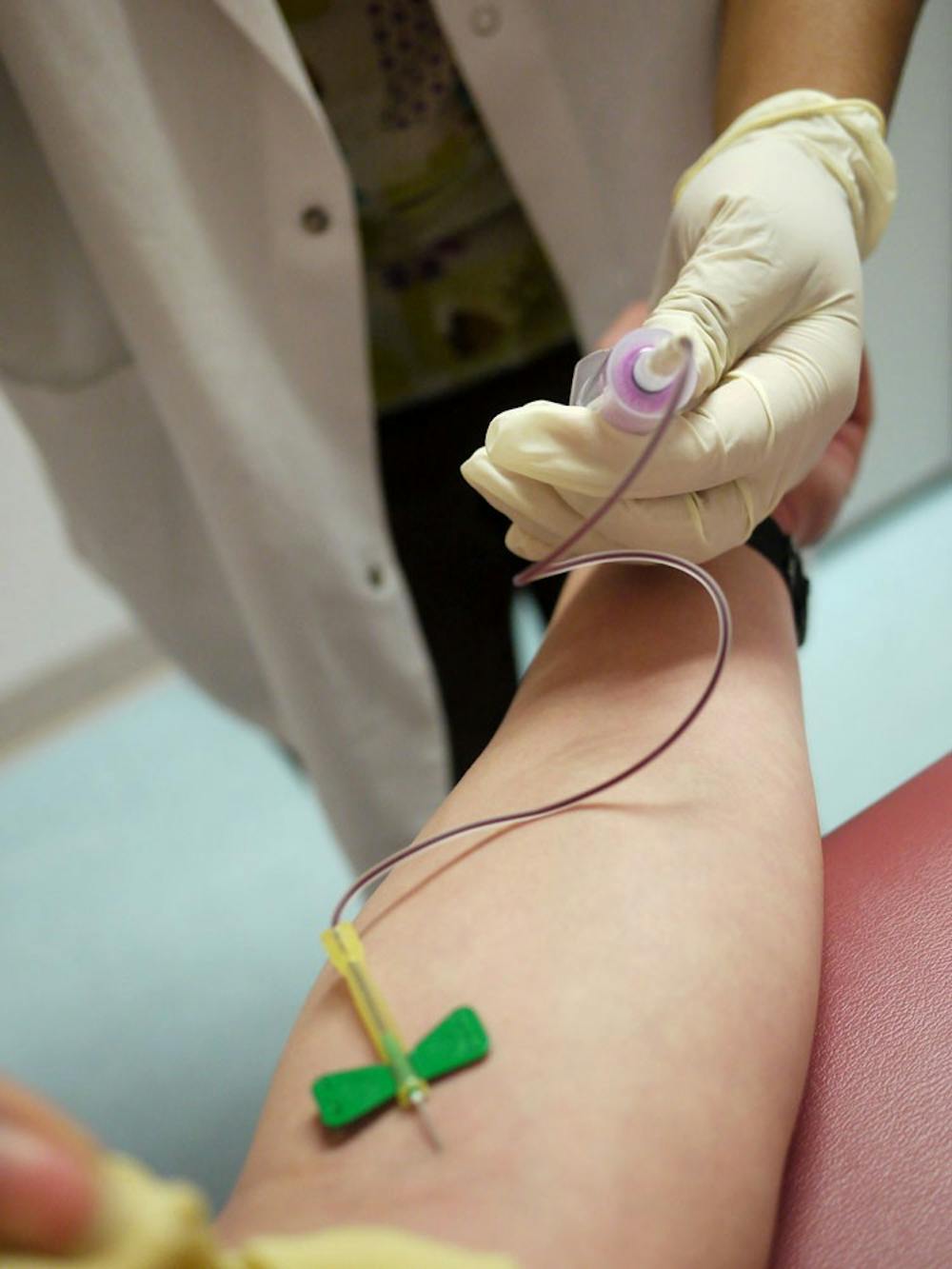An estimated one out of every seven people who are HIV positive don’t know they carry the virus, according to the U.S. Department of Health.
All UB students can walk into Michael Hall rooms 208 and 209 on Thursday, April 2 between 1 and 4 p.m. to receive a confidential HIV test to see if they’re part of that statistic.
Human Immunodeficiency Virus (HIV) attacks a person’s immune system, making it difficult to get rid of other viruses such as the flu or a common cold. Acquired Immunodeficiency Syndrome (AIDS) is the final stage of HIV. Not everyone who has HIV progresses to AIDS, but once someone has HIV or AIDS, they have it for life.
For the past three years on a limited basis, the New York State Department of Health has partnered with Michael Hall on South Campus once a semester to provide students with free rapid HIV testing.
“We really want students to have multiple options and more opportunities to get tested,” said Susan Snyder, director of Student Health Services. “What we perceive as a barrier to get tested would be that students don’t want it a part of their medical record.”
Any appointment or clinical interaction between a patient and a provider is documented in the patient’s medical records. These medical records cannot be released, even to parents, without the consent of the patient, Snyder said.
“For some people it’s a nice thing to not have it on your record,” Snyder said. “As a medical provider team, we are certainly dedicated to the privacy and confidentiality of a student.”
When Michael Hall is not holding free testing and a student is on his or her parents’ insurance, the rapid HIV test would not be billed to that insurance. The student becomes responsible for paying a $10 charge that is placed on his or her student account.
If a student is covered by the school-sponsored plan, then Student Health will bill the $10 charge to his or her insurance and no correspondence is generated. If a student needs more extensive lab testing, then his or her insurance coverage would not be utilized, Snyder said.
The bill on the account says “Medical Treatment Charge.” What the charge represents is not disclosed to anyone but the patient.
In previous years when the New York State Department of Health came to UB, typically fewer than 20 students showed up for testing, Snyder said.
“There are some barriers for students to get tested, and we are trying to eliminate those barriers and help people get tested,” she said.
Sam Ackerman, a junior accounting major, thinks it’s great the school is giving students the opportunity to get tested for free.
“It really gives good awareness to the UB community,” Ackerman said.
According to Snyder, individuals between the ages of 18 and 24 make up a quarter of the newly diagnosed HIV individuals. She said it’s a “quiet concern” because there are lower rates of testing in that age population.
Geena Hobika, a junior psychology major said she’s indifferent about UB offering the free HIV testing.
“I think it’s a personal decision, if you think you have been exposed to it then yeah, students should get tested,” Hobika said.
Snyder said there are lots of things that can be done to treat HIV and other illnesses. She wants students to understand that if they are unsure whether they have it or not, the delay of care has a great impact.
Students getting tested and knowing their results also reduces the risk of spreading HIV to others, she said.
Samantha Brenner is a staff writer and can be reached at features@ubspectrum.com





